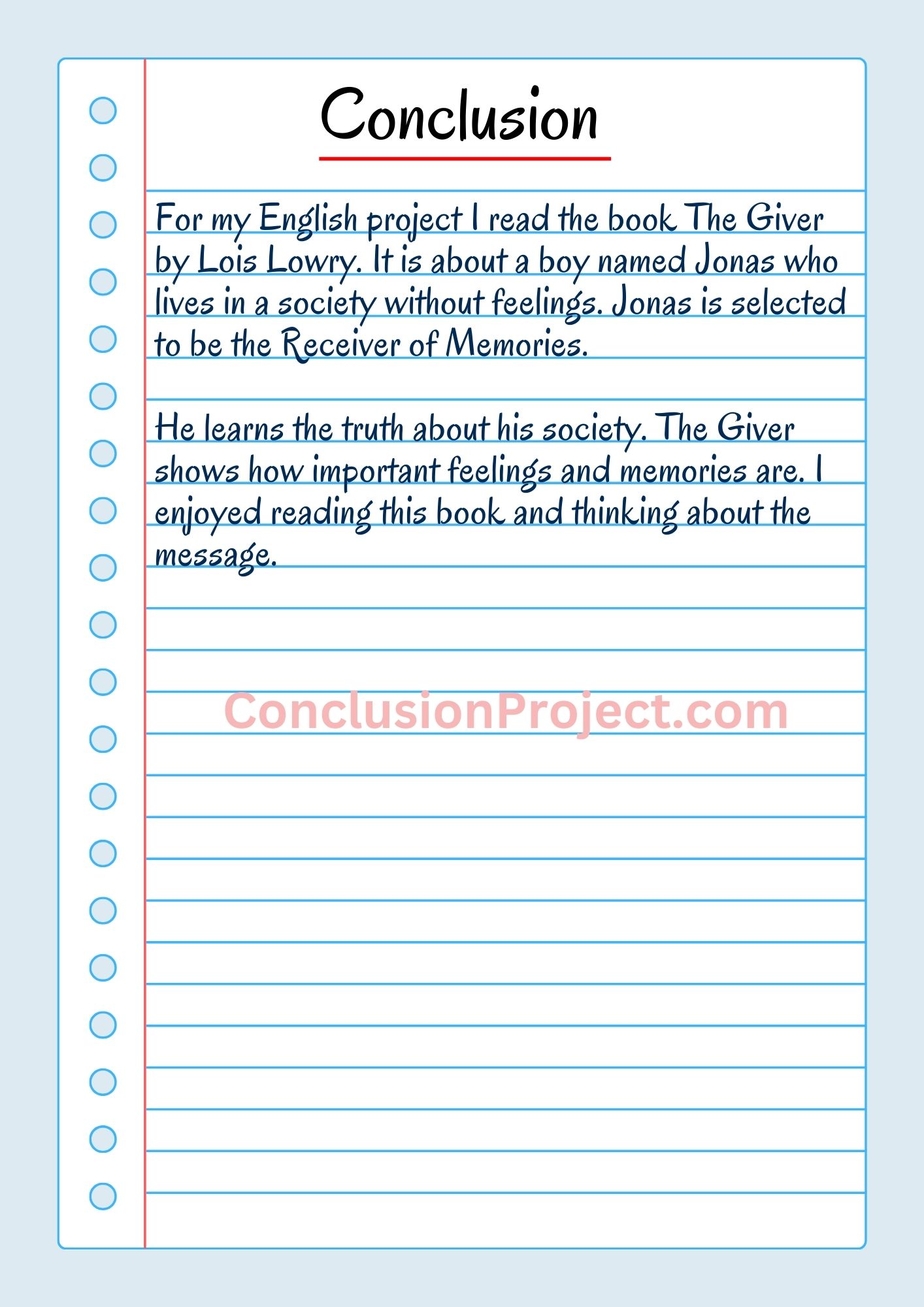Conclusion is an essential part of any English project as it serves multiple purposes. It provides closure to the project by summarizing the main points discussed in the body of the work. This helps to reinforce the key arguments and ideas presented throughout the project.
The conclusion allows the writer to make a final statement or offer a concluding thought on the topic being discussed. This helps to leave a lasting impression on the reader and ensure that the main takeaways from the project are clear and well-defined.
Another important purpose of the conclusion is to tie everything together and provide a sense of completion to the project. It acts as a final wrap-up that brings the project to a satisfying end and leaves the reader with a sense of closure. In essence, the conclusion is where the writer can make their final stand and leave a lasting impact on the reader.
Here, I will show you how to create a good conclusion for your English project, and I will also provide some sample examples.
How to Write Conclusion for English Project
When it comes to writing a conclusion for an English project, it is important to keep in mind a few key points to ensure that your conclusion is effective and serves its purpose. Here are some tips on how to write a conclusion for your English project:
Length: Your conclusion should be concise and to the point, typically around 3-5 sentences in length. It should summarize the main points of your project and leave a lasting impression on the reader.
What to include: In your conclusion, you should restate your thesis statement and summarize the key points of your project. You may also want to include a call to action or suggest further research related to your topic. This will help tie everything together and leave a lasting impact on your audience.
What not to include: Avoid introducing new information or arguments in your conclusion. This is not the place to bring up new ideas or points that were not previously discussed in your project. Stick to summarizing what you have already presented and leave your reader with a clear understanding of your main points.
By following these guidelines, you can write a strong conclusion for your English project that effectively wraps up your work and leaves a lasting impression on your audience. Remember to keep it concise, summarize your main points, and avoid introducing new information to ensure your conclusion is impactful and memorable.
English Project Conclusion
For my English project I read the book The Giver by Lois Lowry. It is about a boy named Jonas who lives in a society without feelings. Jonas is selected to be the Receiver of Memories. He learns the truth about his society. The Giver shows how important feelings and memories are. I enjoyed reading this book and thinking about the message.

Conclusion for Project (Keeping Quite)
The “Keeping Quiet” project was a great success. We learned the importance of taking time to listen and reflect, rather than always speaking. By practicing silence, we were able to improve our focus and reduce stress. This project has shown us the benefits of quiet time and we plan to continue incorporating it into our daily routine.
Also Check: Conclusion of Pollution Essay or Project
Conclusion for English Language Project
In conclusion, this English project has been a challenging yet rewarding experience. Through researching and analyzing various literary works, I have gained a deeper understanding of different writing styles and techniques. Additionally, presenting my findings to my classmates has helped me improve my communication skills and gain confidence in public speaking.
Conclusion for English Project Example
The project successfully achieved its objectives by analyzing various literary works, conducting in-depth research on the chosen topic, and presenting the findings in a coherent and compelling manner. Through this project, we have demonstrated the ability to critically analyze literature, synthesize information, and effectively communicate our ideas. Furthermore, the project has allowed us to develop our writing, research, and analytical skills, which will undoubtedly benefit us in our academic and professional pursuits.
Also Check: Conclusion of Consumer Rights and Awareness
